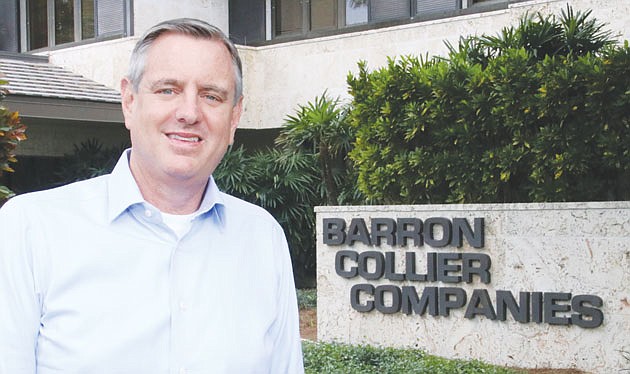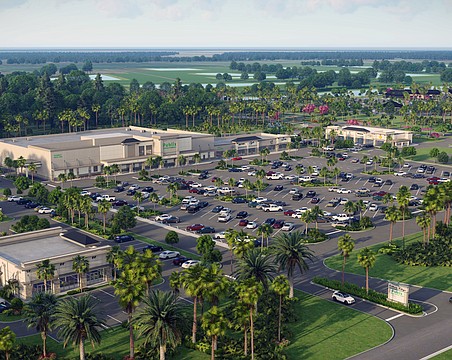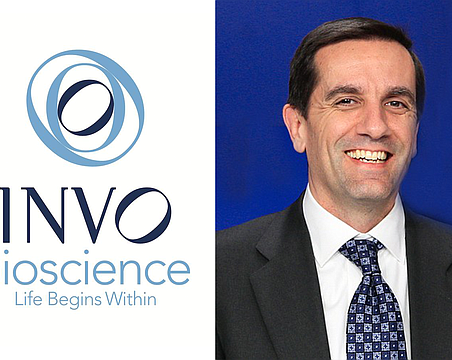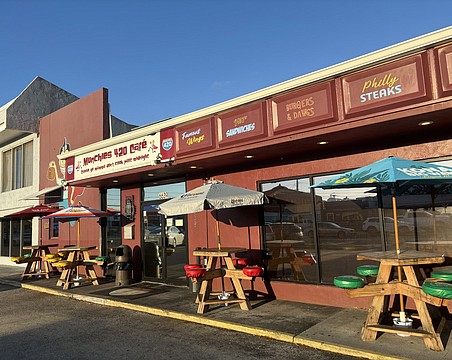When your real estate company is synonymous with the county in which it has been headquartered for more than a century, it could be a challenge to expand geographically.
But that's just what Barron Collier Cos. — whose namesake founded Collier County and from where the company has been based since 1911 — is considering.
Blake Gable, a fourth-generation Collier family member who became CEO earlier this year, says the company for the first time is looking to expand beyond the borders of Collier County.
The company's search is in its early stages, but Gable says Barron Collier is focusing in on a variety of projects throughout Southwest Florida.
“My goal for 2017 is to find the company a new project, because we just haven't done one in a while,” says Gable, 46, who joined the company in 1999 and, in the process, suspended plans to go to law school and move to Colorado.
“We want to be very methodical about it, though,” he adds. “We won't force anything. And if we go somewhere outside Collier, we'll really want to go and be a part of the community. I think that's one of the primary reasons why the company has done so well here. People know that if Barron Collier Cos. says something, they're going to do it. We've established a good track record.”
Most likely, Gable thinks Barron Collier would get involved in a joint venture, a structure the company has employed many times.
With Lutgert Cos., Barron Collier built the successful Mercato retail and office complex in Naples, selling it in 2015 for nearly $240 million. With Boston-based FoxRock Properties, the company acquired and manages Newgate Center, an office complex in Naples' Park Shore community.
At Granada Shoppes, Barron Collier teamed up with Courtelis Co. to develop a more than 300,000-square-foot shopping center on 29 acres.
But Barron Collier's most ambitious joint venture continues to take shape about 17 miles outside Naples, where Domino's Pizza founder Tom Monaghan decided to craft a new university and town around it.
Ave Maria marked the first new community in decades in Florida to be built in conjunction with a center for higher learning when it kicked off in 2002. Today, as the Roman Catholic-influenced Ave Maria University has established a law school and other curriculum, Barron Collier has developed hundreds of residences, infrastructure and commercial space on roughly 5,000 acres.
And because the town marked the first significant project under the Rural Lands Stewardship Program, some 17,000 acres are being set aside for perpetual environmental preservation — a nod to founder Barron Gift Collier Sr.'s respect for land and the need to maintain it for the future.
“It's been a real honor for us,” Gable says. “Tom Monaghan put his faith in us and our management. And the market has accepted the community, so we must be doing something right.”
Monaghan's CFO, Paul Roney, contends Barron Collier has done a lot right.
“The company is first class, straightforward and fair,” says Roney, an Ave Maria University trustee and president of Domino's Farms, a Michigan business park Monaghan owns.
“We went through some very difficult times together, especially fairly early on because of the recession, but from our perspective, it's been a very good partnership.”
Roney adds that from 2007 through 2011, he spoke to Gable nearly “every single day.”
The bigger picture
Gable knows that his biggest task, however, beyond building new projects, forging new partnerships or starting or backing new ventures — as the company has in insurance, environmental services, engineering, even a micro-brewery — is to perpetuate Barron Collier Cos.
That's why in January, shortly after he took the helm of the company, he met with each of Barron Colliers' more than 175 employees individually, asking how management could help them do their jobs better.
“The team we've built here is second to none,” Gable says. “So as long as I stay out of their way, I figure we'll be fine.”
He also set out to evaluate all of the company's holdings and activities — from real estate to oil exploration and mining to agriculture — to plot out a direction for the company's future.
“I wanted to look at everything we have, so we can chart a path for where we want to go,” Gable says. “I want to make sure, too, that we just don't continue to do things by default.”
To that end, he formed groups of younger employees, and empowered them with coming up with what Barron Collier will look like years from now. This month, each group will make a “Shark Tank”-like presentation to management suggesting a new line of business the company should consider.
Not that Barron Collier has to do anything different, of course.
The company has lots of real estate projects in the works in Collier County, from a medical office building to a new apartment complex, and then there's always the 80,000 acres of undeveloped land it still manages — a fraction of the 1.3 million acres Barron Collier Sr. acquired after his first visit to the area in 1911.
“Unless something feels really good, we don't need to take a big bet on anything,” Gable says. “Twenty-four, 36 months from now, I don't want to have to lay awake at night wondering how I could have been so stupid. My main job right now is to make sure that hard times don't sneak up on us again.”
Even Barron Collier hasn't been immune from macro-economic and natural forces.
During the economic recession, Barron Collier real estate projects — from residential neighborhoods to office buildings — suffered the same way many nascent developers did.
And the bacteria that has devastated Florida's citrus crop hasn't left Barron Collier oranges alone, either. Roughly half of the company's orange groves have been impacted by citrus greening, though Gable believes the disease was detected relatively early and steps are being taken to arrest it.
Gable also is grappling with the enormous run up in Collier County land prices since the recession ended.
“I'm having a hard time understanding the prices some people are paying today for properties,” he says. “We're eight, maybe nine years into this real estate recovery. It doesn't take a genius to realize that at some point there's going to be another recession. So I would rather be cautious.”
Collier County will always be home, he is quick to point out — even as he expresses at least a willingness to consider other areas of Southwest Florida, or beyond.
“This is where we were founded, and this is where we are going to be going forward,” Gable says. “Still, it would also be smart to look elsewhere for opportunities.”






